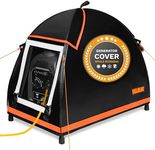Buying Guide for the Best Silent Generator For Home Use
Choosing a silent generator for home use involves understanding your power needs, the noise levels you can tolerate, and the features that will make the generator convenient and efficient for your specific situation. Silent generators are designed to provide power without the loud noise typically associated with traditional generators, making them ideal for residential areas where noise pollution can be a concern. Here are some key specifications to consider when selecting a silent generator for home use.Power OutputPower output, measured in watts, indicates how much electrical power the generator can produce. This is crucial because it determines what appliances and devices you can run simultaneously. Generators come in various power ranges: small generators (up to 2000 watts) are suitable for basic needs like lights and small electronics, medium generators (2000-5000 watts) can handle larger appliances like refrigerators and sump pumps, and large generators (5000+ watts) can power multiple large appliances and even central air conditioning systems. To pick the right one, list the devices you need to power and add up their wattage requirements.
Noise LevelNoise level, measured in decibels (dB), indicates how loud the generator will be when operating. Silent generators are designed to operate at lower noise levels, typically ranging from 50 to 70 dB. For comparison, normal conversation is about 60 dB. If you need a generator for nighttime use or in a quiet neighborhood, aim for a model with lower dB ratings. Consider where you will place the generator and how close it will be to living areas to determine the acceptable noise level for your situation.
Fuel TypeGenerators can run on various types of fuel, including gasoline, diesel, propane, and natural gas. Gasoline generators are common and easy to refuel but can be noisy and require regular maintenance. Diesel generators are more fuel-efficient and durable but can be louder and more expensive. Propane and natural gas generators are quieter and cleaner but may require a more complex setup. Choose a fuel type based on availability, cost, and your preference for maintenance and environmental impact.
Run TimeRun time refers to how long the generator can operate on a full tank of fuel. This is important for planning how often you will need to refuel, especially during extended power outages. Generators with longer run times (8-12 hours or more) are more convenient as they require less frequent refueling. Consider your typical usage patterns and how long you need the generator to run continuously to select a model with an appropriate run time.
PortabilityPortability is about how easy it is to move the generator around. Portable generators are equipped with wheels and handles, making them easier to transport and store. This is particularly important if you plan to use the generator in different locations or need to move it for storage. If you need a generator that can be easily relocated, look for models with good portability features. For stationary use, portability may be less of a concern.
Inverter TechnologyInverter technology allows generators to produce cleaner and more stable power, which is safe for sensitive electronics like computers and smartphones. Inverter generators are typically quieter and more fuel-efficient than conventional generators. If you need to power sensitive devices or prefer a quieter operation, consider a generator with inverter technology. This feature is especially useful for home use where stable power and low noise are priorities.
Safety FeaturesSafety features such as automatic shut-off, overload protection, and low-oil alerts are important to prevent damage to the generator and connected devices, and to ensure safe operation. Automatic shut-off can prevent overheating, overload protection guards against drawing too much power, and low-oil alerts help maintain the generator's engine. Look for models with comprehensive safety features to ensure reliable and safe operation, especially if you are not experienced with using generators.
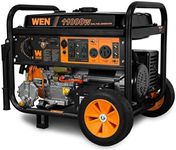
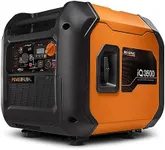
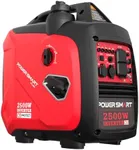

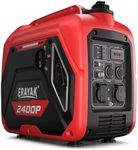
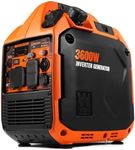
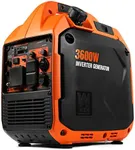
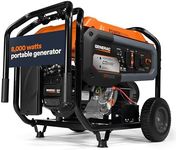
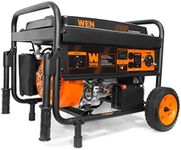



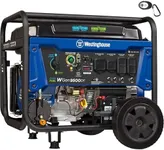
![[Upgraded Version] ALLPOWERS S2000 Portable Power Station 2000W (Peak 4000W) MPPT Solar Generator 1500Wh Backup Battery with 4 AC Outlets for Outdoor Camping RV Emergency Off-Grid](https://images-proxy.bestreviews.guide/YtTaRg6uNv-LaNq9_7sPyzjq62s=/0x150/https://m.media-amazon.com/images/I/31g7wSEKaOL._AC_CX679_.jpg)
